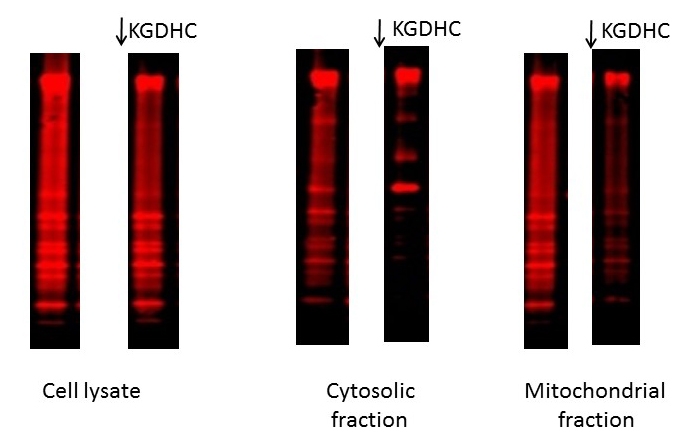You are here
Mitochondrially Mediated Post-Translational Modification of Thousands of Cellular Proteins May Be Critical in Alzheimer’s Disease
RESEARCH PROJECT:
In ProgressReducing the enzyme KGHDC has widespread consequences on cell and brain function. We postulate this is because it is responsible for post-translation modification of thousands of proteins by succinylation. Succinylation alters cell function and shifts dramatically with changes in metabolism. We are defining the human brain succinylome and testing whether it shifts in Alzheimer’s disease.

Reducing KGDHC diminishes succinylation
Probes for NAD+/NADH ratios. Changes in metabolism can be observed in real time with genetically engineered probes. The following panel shows a probe to measure NAD+/NADH ratios that can be localized to the mitochondria.

